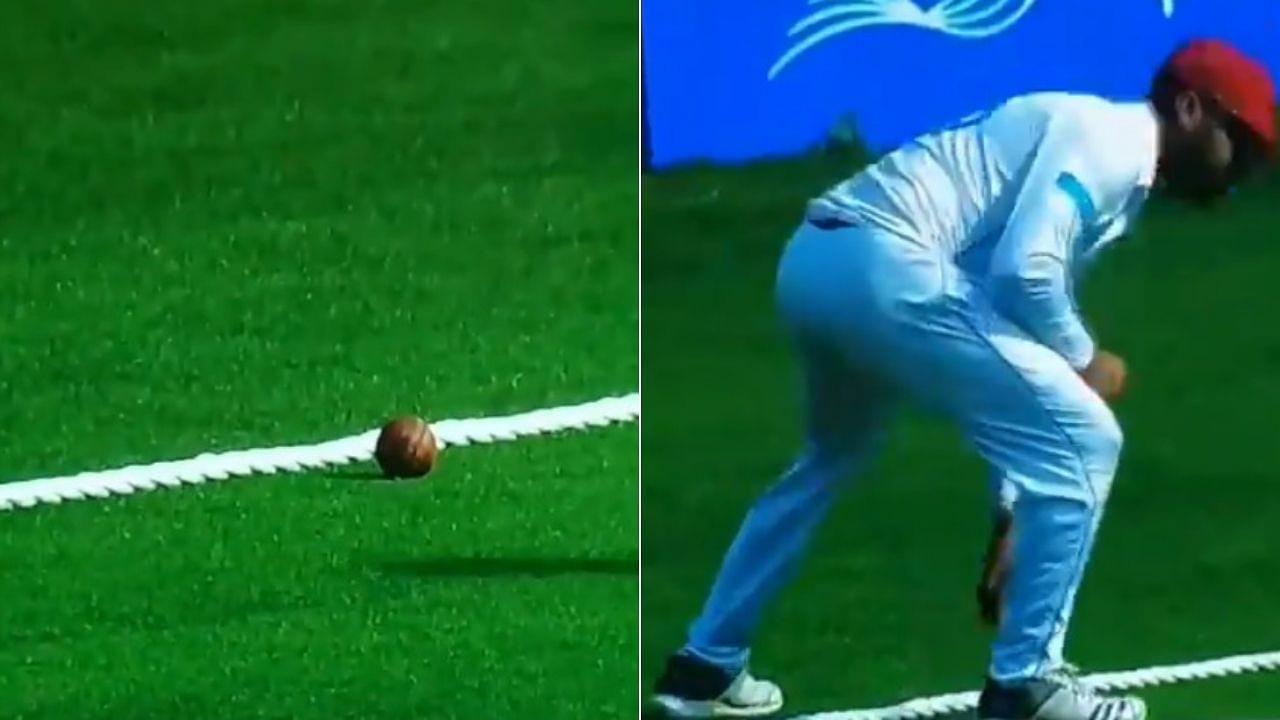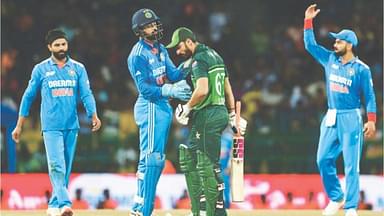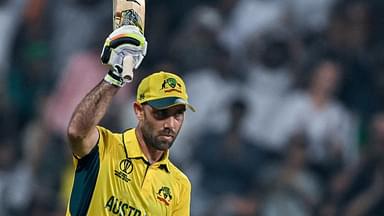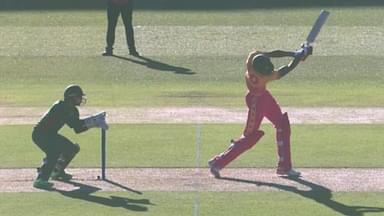Hashmatullah Shahidi deliberate four: The Afghani batsman deliberately mis-fielded to give the visitors a boundary in the second Test.
Advertisement
During the third day of the second Test of the ongoing Zimbabwe’s tour of UAE in Abu Dhabi, Afghanistan batsman Hashmatullah Shahidi invited a controversy as his desperation on the field earned his team a five-run penalty.
It all happened on the last delivery of the 91st over when Zimbabwe all-rounder Sikandar Raza hit a Sayed Shirzad fuller delivery on the off-side. Already eight-down and batting with a tail-ender in Blessing Muzarabani, Raza aimed at running a single to retain strike in the following over.
Hashmatullah Shahidi deliberate four
With Afghanistan wanting Muzarabani on strike for a full over, they hoped for the ball to reach the boundary. Just as the ball stopped near the boundary rope, Shahidi bent down to pick the ball but only after his left foot was across the rope.
Shahidi, who had earned accolades for becoming Afghanistan’s first double-centurion in the first innings, did the same to remove Raza from the strike. Less did he know that Raza would be taking strike in the next over in addition to his team receiving a five-run penalty.
Deliberate misfield from the Afghani player to make the newer batsmen take strike, didn’t think this was allowed no? #Cricket #AFGvZIM pic.twitter.com/fzHlOofALu
— GiraffePig (@ClarkeTom20) March 12, 2021
Why did umpires give Afghanistan five-run penalty in Abu Dhabi Test?
A primary reason why the on-field umpires penalised the hosts was because a fielder isn’t allowed to concede boundary through any “wilful act” of his.
According to MCC’s Law 19.8, “If the boundary results from an overthrow or from the wilful act of a fielder, the runs scored shall be any runs for penalties awarded to either side and the allowance for the boundary and the runs completed by the batsmen, together with the run in progress if they had already crossed at the instant of the throw or act.”
Furthermore, the law also has a clause with respect to which batsman will take strike on the following delivery when such an act happens. With the Zimbabwean batsman settling for a single, Raza would’ve been on strike in the next over and it is what happened at the Sheikh Zayed Stadium.
“[Batsman returning to wicket he/she has left] shall apply as from the instant of the throw or act” the law states further.






